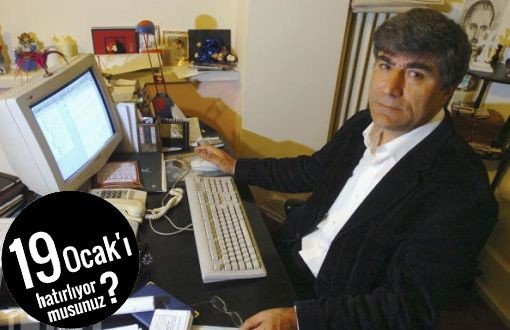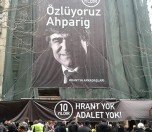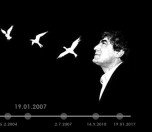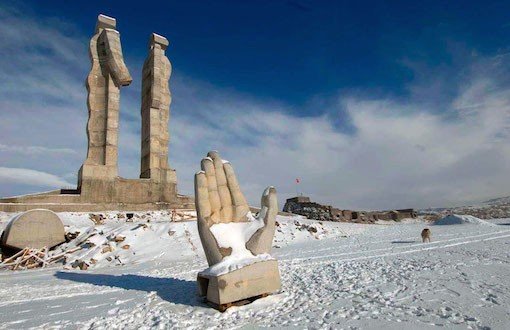Click to read the article in Turkish
On January 19, 2007, when Hrant Dink was assassinated in Istanbul, very few people in Armenia knew who he is and what kind of work he does in Turkey.
Very few people knew who Hrant was in the Diaspora as well. After all, Hrant’s target audience was primarily inside Turkey. That is why not too many in the whole world knew who he is and why a minority newspaper journalist and his work was very significant for Turkey and that his assassination would signal the start of big changes in the country in the coming years.
In autumn 2006, months before his assassination, Hrant attended the Third Diaspora-Armenia Conference in Yerevan. This was a rare occasion when Hrant reflected upon his ideas and feelings about Armenia.
During that visit, in an interview to a local Armenian radio, Hrant was sending subtle messages to Armenia. “Being a state is different from being a nation,” he said. “When you elevate from a nation to a state, you need new thoughts and ideas, which might seem good or bad to you. But we need to have the bravery to bring these ideas to the table and discuss them.”
“We need to become democratic persons in order to make our state democratic too,” he added.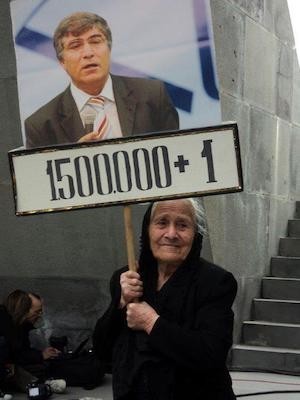
Only a few months after that, Hrant was killed in Istanbul. In the absence of relations between both countries, even on the simplest levels, the initial news was received in Armenia through international coverage. Of course, for Armenians in Armenia, like Armenians everywhere in the world, it brought back the memories of the Armenian Genocide of 1915. First mourners started to get out in the streets with a few signs that read “1.500.000 + 1” pointing out to Hrant as the newest victim added to the 1.5 million others a century ago.
Less than three years before this, in February 2004, an Armenian lieutenant was axed to death during sleep by an Azerbaijani officer in Budapest during a NATO “Partnership for Peace” program. Amid the usual conflation of Turks and Azerbaijanis in Armenia, the news of Hrant’s killing took another emotional and psychological dimension.
Although there have always been those who disagreed with Hrant, some of them even vilified him and called him names, but his assassination literally silenced those, moreover, most of those even mourned Hrant’s killing and called him a hero who died for rights and freedom.
Smaller scale vigils and commemoration events took place in the next years, but nothing sponsored by a big organization or a government body. However, now there is hardly an Armenian that you can stop in the street and doesn’t know who is Hrant Dink.
There is a number of Armenians from Armenia who know the modern-day Turkey, who’ve been there, they have made trade with, and some even chose to move there. But for most Armenians from Armenia, Turkey is still regarded as an unsafe land for Armenians. The murder of a person in Hrant Dink’s caliber in daylight has come to cement that conviction.
The Azerbaijani officer who killed an Armenian lieutenant in Budapest was sent back home in 2012 in a shady deal between Hungary and Azerbaijan, he was awarded gifts by his government and celebrated as a national hero upon his arrival. Meanwhile, the teenage murderer of Hrant Dink was also welcomed as a hero; the police have taken photos with him in front of the Turkish flag. The investigations and the trials haven’t uncovered who really are behind the killing. While Erdogan and his appointed officials added Hrant’s murder in their collection of boogieman list to scare and accuse political rivals and enemies.
Events like these probably explain the best way the reasons of the often-repeated conflation of Turks and Azerbaijanis in Armenia. Not mentioning the fact that they are blockaded by both countries since more than two decades.
Hrant Dink’s assassination moved mountains in Turkey in the following years, but the quick reversal of those changes that we are witnessing nowadays and the frustration caused by the lack of accountability in his murder case didn’t escape the attention of Armenians in Armenia. It’s already been very hard to convince them otherwise. (HE)





